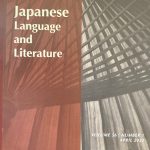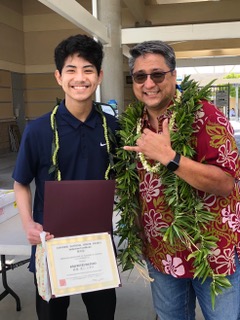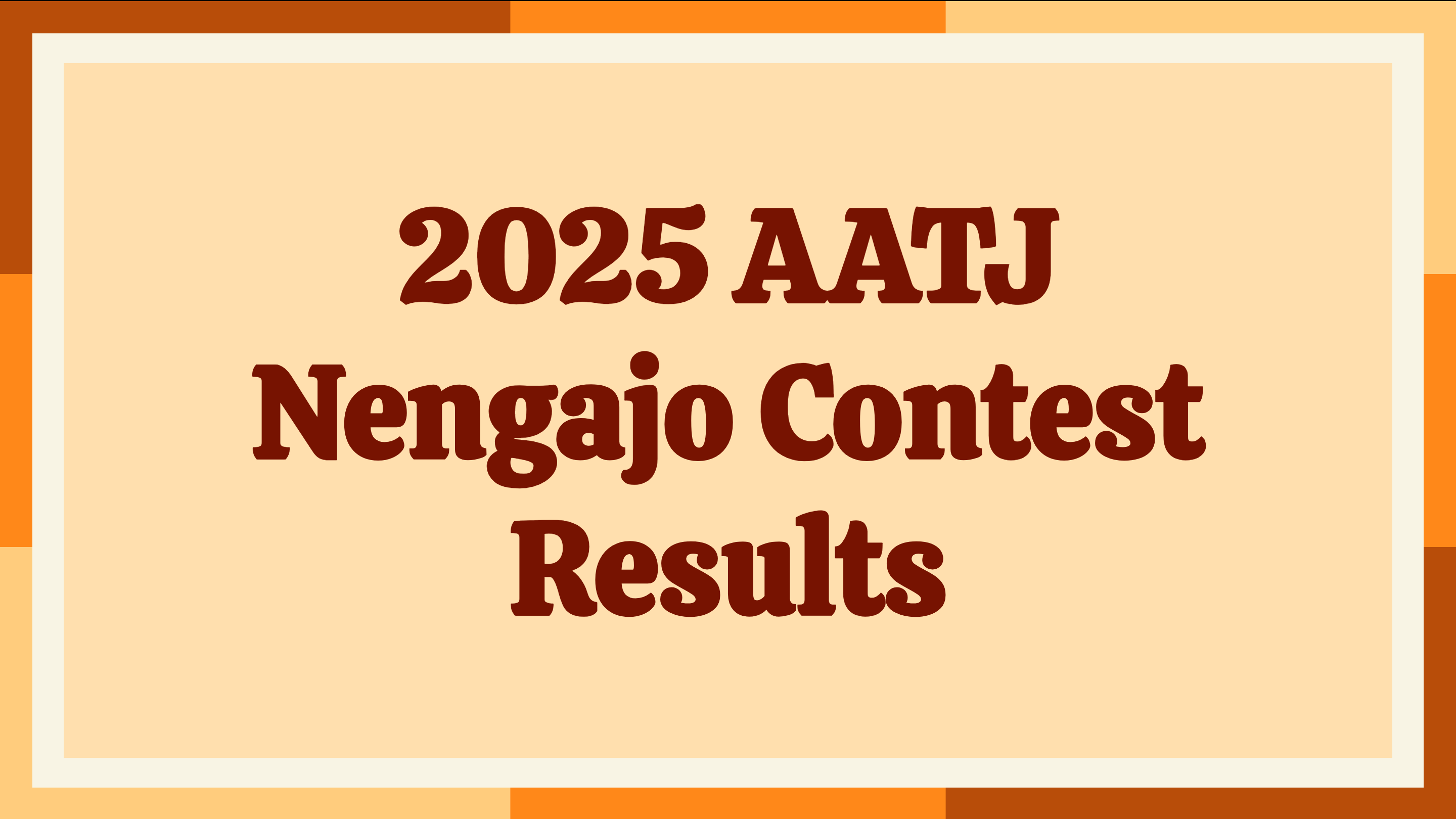Japanese language educators have added expertise in online teaching and learning to their time-tested repertoire of education tools. AATJ’s mission is to provide support and resources. Our continuing series of webinars (archived and available), our publications, and other resources are available to all.
Fostering Positive Collaboration with Colleagues and Maintaining Optimism and Hope
AATJ/JFLA Webinar with Kei Tsukamaki, 2025 ACTFL National Teacher of the Year
April 19, 2025
PDT (Pacific Daylight Time): 10:30 AM – 12:00 PM
MDT (Mountain Daylight Time): 11:30 AM – 1:00 PM
CDT (Central Daylight Time): 12:30 PM – 2:00 PM
EDT (Eastern Daylight Time): 1:30 PM – 3:00 PM
Speaker: Mrs. Kei Tsukamaki, Juanita High School, Kirkland, Washington
Facilitator: Yoshiko Saito-Abbott, Ph.D., California State University Monterey Bay, AATJ Professional Development Director
Educators know the importance of community within their classrooms to build students’ confidence and encourage academic risk taking. In this session, participants will focus on themselves as lifelong learners and practice skills and protocols to build their own collegial relationships and promote their own growth and success.
Webinar Archive
- Maximizing JNHS for Students and Programs, March 1, 2025
- ACTFL 2025 Proposal Writing, December 14, 2024
- Design for Belonging, October 19, 2024
- Advocacy in Action, September 28, 2024
- Current Trends in Japanese Language Education within the United States, April 28,2024
- ChatGPT and AI Teaching and Learning: The Role of AI Tools in the Japanese Classroom, October 7, 2023 and October 21, 2023
- Examining Ourselves in Order to Be Culturally Responsive Educators and Create Inclusive Environments: Part 2: Curricular Examination and Recruiting and Retaining Students and Faculty of Color, June 24, 2023
- Examining Ourselves in Order to Be Culturally Responsive Educators and Create Inclusive Environments: Part 1: Bias and Microaggressions, May 13, 2023
- Diversity, Equity, Inclusion, and Belonging (DEIB) 101, May 7, 2022 – was not recorded to provide an opportunity to discuss and practice in a safe environment. This workshop started with the basic vocabulary and introduce common situations that teachers encounter. Then we focused on microaggressions, with tips on how to respond and defuse challenging situations.
- Helping Students with Developmental Disabilities in the Japanese Language Classroom, April 2, 2022
- The Seal of Biliteracy, Our Programs, and Me, October 2, 2021
- Synergy of synchronous and asynchronous learning environments, July 3, 2021
- Japanese Language Education in the Next Normal – We Won’t Teach Japanese, April 17, 2021
- New York Tough: Working Together for Creating Online Teaching Materials, March 6, 2021
- Engaging Our Learners: Lessons Learned While Teaching Japanese, February 16, 2021
- Advocating for proficiency-oriented Japanese language learning through the National Japanese Exam, January 16, 2021
- 日本語教育の現状と課題, 10/24/2020
- Ongoing Advocacy for Japanese Language and Your Program, 9/19/20
- Promoting Social Justice and Antiracism in Japanese Language Teaching, 8/8/20
- Deeper Engagement in Learning, 7/21/20
- Facing the “New Normal” in Fall 2020: Practical Tools, 7/7/20
- Teaching Writing Online: Hiragana, Katakana, Kanji, 6/22/20
- Preparing for the 2020 AP Japanese Exam, 5/2/20
- Advocacy for Japanese Language Programs, 4/26/20 (OATJ Presentation)
- Social Emotional Learning in the Classroom, 4/25/20
- Remote Teaching for Younger Students, 4/18/20
- Pivoting to Remote Assessment, 4/11/20
- Flying by the Seat of Your Pants: Crisis Teaching Without Sacrificing Proficiency, 3/28/20
- Teaching Japanese Online 101, 3/20/20 (NECTJ Presentation)
- How to Move Online in a Hurry (ACTFL Presentation)
Special Sections in AATJ’s Journal
 OUR CHALLENGES AND TRIUMPHS: Female Asian Faculty in Leadership Positions in US Colleges and Universities
OUR CHALLENGES AND TRIUMPHS: Female Asian Faculty in Leadership Positions in US Colleges and Universities
The April 2022 issues of Japanese Language and Literature contains a special section in which eight email Asian faculty who have served in leadership positions tell their own career and life stories. These stories celebrate female leadership, inspire future leaders, and offer some practical advice. The articles can be seen, read, and downloaded individually on the journal’s website: jll.pitt.edu. We have also posted the entire 80-page section as a single PDF file; you can read or download it by clicking HERE.
DIVERSITY AND INCLUSION IN JAPANESE LANGUAGE TEACHING
The October 2020 issue of Japanese Language and Literature contains 14 articles in a special section on diversity, inclusion, and professionalism in Japanese language teaching in the United States. The articles can be seen, read, and downloaded individually on the journal’s website: jll.pitt.edu. We have also posted the entire 144-page section as a single PDF file; you can read or download it by clicking HERE.
 Japanese National Honor Society
Japanese National Honor Society
AATJ is pleased to assist teachers with a way to recognize their outstanding students, to encourage them to continue in the study of Japanese, and to promote activities that give students ways to use their language skills.
Annual Nengajo Contest
The AATJ Nengajo Contest is a nationwide contest for students in elementary school, middle school, high school, and university. All participants receive a certificate of participation. Winners at each level in each category also receive certificates and prizes from AATJ.
The Nengajo Contest is an excellent advocacy and teaching opportunity for your program. Many students love artistic pursuits, and this is their chance to shine in your class. It also represents an excellent chance to practice language and culture.



